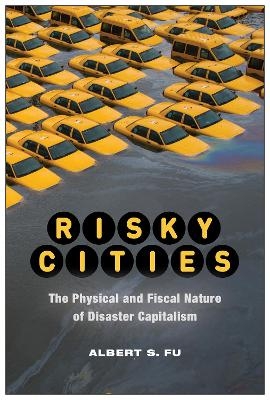
Risky Cities
The Physical and Fiscal Nature of Disaster Capitalism
Seiten
2022
Rutgers University Press (Verlag)
978-1-9788-2031-9 (ISBN)
Rutgers University Press (Verlag)
978-1-9788-2031-9 (ISBN)
Provides a critical examination of global urban development, capitalism, and its relationship with environmental hazards. Risky Cities is not simply about post-catastrophe profiteering. This book focuses on the way in which disaster capitalism has figured out ways to commodify environmental bads and manage risks.
Over half the world’s population lives in urban regions, and increasingly disasters are of great concern to city dwellers, policymakers, and builders. However, disaster risk is also of great interest to corporations, financiers, and investors. Risky Cities is a critical examination of global urban development, capitalism, and its relationship with environmental hazards. It is about how cities live and profit from the threat of sinkholes, garbage, and fire. Risky Cities is not simply about post-catastrophe profiteering. This book focuses on the way in which disaster capitalism has figured out ways to commodify environmental bads and manage risks. Notably, capitalist city-building results in the physical transformation of nature. This necessitates risk management strategies –such as insurance, environmental assessments, and technocratic mitigation plans. As such capitalists redistribute risk relying on short-term fixes to disaster risk rather than address long-term vulnerabilities.
Over half the world’s population lives in urban regions, and increasingly disasters are of great concern to city dwellers, policymakers, and builders. However, disaster risk is also of great interest to corporations, financiers, and investors. Risky Cities is a critical examination of global urban development, capitalism, and its relationship with environmental hazards. It is about how cities live and profit from the threat of sinkholes, garbage, and fire. Risky Cities is not simply about post-catastrophe profiteering. This book focuses on the way in which disaster capitalism has figured out ways to commodify environmental bads and manage risks. Notably, capitalist city-building results in the physical transformation of nature. This necessitates risk management strategies –such as insurance, environmental assessments, and technocratic mitigation plans. As such capitalists redistribute risk relying on short-term fixes to disaster risk rather than address long-term vulnerabilities.
Albert S. Fu is professor of sociology at Kutztown University of Pennsylvania. He has previously published articles in Cities, City & Community, Critical Sociology, International Journal of Urban & Regional Research, and Urban Studies.
List of Figures
Acknowledgements
List of Abbreviations
Introduction
Chapter 1: Living with Disaster & Capitalism
Chapter 2: Sinkholes and the Risky Foundations of Cities
Chapter 3: The Logistical Nightmare of Trash & Urban Nature
Chapter 4: Fire, the Wildland-Urban Interface, and Feedback Loops
Chapter 5: Assessing and Managing Risk
Conclusion: Regenerative Urbanism
References
Index
| Erscheinungsdatum | 31.03.2022 |
|---|---|
| Zusatzinfo | 7 b&w images |
| Verlagsort | New Brunswick NJ |
| Sprache | englisch |
| Maße | 152 x 229 mm |
| Gewicht | 4 g |
| Themenwelt | Naturwissenschaften ► Geowissenschaften ► Geografie / Kartografie |
| Sozialwissenschaften ► Soziologie ► Empirische Sozialforschung | |
| Technik ► Umwelttechnik / Biotechnologie | |
| ISBN-10 | 1-9788-2031-3 / 1978820313 |
| ISBN-13 | 978-1-9788-2031-9 / 9781978820319 |
| Zustand | Neuware |
| Haben Sie eine Frage zum Produkt? |
Mehr entdecken
aus dem Bereich
aus dem Bereich
über eine faszinierende Welt zwischen Wasser und Land und warum sie …
Buch | Hardcover (2023)
dtv (Verlag)
24,00 €
Buch | Hardcover (2024)
Schweizerbart'sche, E. (Verlag)
24,00 €
Eine Einführung in die spezielle Mineralogie, Petrologie und …
Buch | Hardcover (2022)
Springer Spektrum (Verlag)
59,99 €


